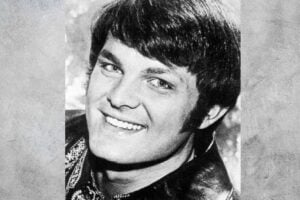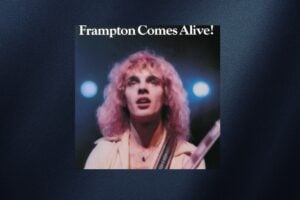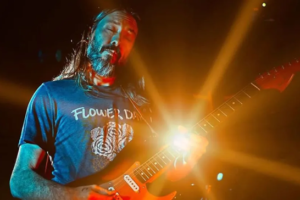
Feature Photo: by Brian Kachejian
Our list of the 10 Best Rock Songs About History features some of the most legendary songs ever written and recorded by artists who explore significant moments in world history. Although we are a rock website based in New York, we recognize that our readership is primarily global. More importantly, we acknowledge that music knows no geographical boundaries, and we strive to celebrate music from around the world. In this article, we aimed to cover not just American history but world history, including songs about historical events from multiple countries and eras throughout recorded history.
# 10 – Boston Tea Party – The Sensational Alex Harvey Band
Kicking off our list with a bang is “Boston Tea Party” by The Sensational Alex Harvey Band, a track that blends hard rock swagger with historical storytelling to recount one of the pivotal events that sparked the American Revolution. Featured on their 1976 album SAHB Stories, “Boston Tea Party” captures the raw energy and eccentric charisma that defined the band’s style while offering a raucous, rebellious take on a key moment in American history. Recorded at Basing Street Studios in London and produced by David Batchelor, the song stands as a unique fusion of rock and history, driven by Alex Harvey’s commanding vocal presence and his band’s tight, dynamic instrumentation.
Read More: Top 10 The Sensational Alex Harvey Band Songs
# 9 – Black Friday – Steely Dan
Featured on Steely Dan’s 1975 album Katy Lied, “Black Friday” is a song that deftly merges the band’s signature jazz-rock fusion with a biting commentary on financial greed and economic collapse. Written by Donald Fagen and Walter Becker, and recorded at ABC Studios in Los Angeles with producer Gary Katz, the song taps into the dark humor and sharp wit that has become a hallmark of Steely Dan’s lyrics. “Black Friday” draws its inspiration from the historical events surrounding the original “Black Friday,” which refers to the financial panic that struck the United States on September 24, 1869—a day that saw the gold market crash due to the unscrupulous actions of speculators, sending shockwaves through the U.S. economy.
Read More: Steely Dan’s Best Song On Each Of Their Studio Albums
# 8 – When the Levee Breaks – Led Zeppelin
Few rock songs have captured the haunting devastation of a natural disaster quite like “When the Levee Breaks” by Led Zeppelin. Featured as the closing track on the band’s iconic 1971 album Led Zeppelin IV, this powerful blues-rock song reimagines a historical tragedy through a modern rock lens. Originally recorded at Headley Grange, a remote mansion in Hampshire, England, and produced by guitarist Jimmy Page, “When the Levee Breaks” is a tour de force of heavy, swampy grooves, amplified by the now-legendary drum sound created by John Bonham in the building’s stone stairwell. The song, written by all four members of Led Zeppelin, draws its inspiration from the 1927 Great Mississippi Flood, one of the deadliest and most devastating floods in U.S. history.
Read More: 10 Most Underrated Led Zeppelin Songs
# 7 – Bastille Day – Rush
Among the ten best rock songs inspired by historical events, “Bastille Day” by Rush stands out as an explosive retelling of a pivotal moment in world history—the French Revolution. Featured on their 1975 album Caress of Steel, “Bastille Day” captures the spirit of revolt and the thirst for freedom that marked the storming of the Bastille prison in Paris on July 14, 1789. This momentous event is often considered the flashpoint that ignited the French Revolution, a conflict that would forever alter the course of French and world history. Recorded at Toronto Sound Studios and produced by Terry Brown, Caress of Steel showcases Rush’s transition from straightforward hard rock to a more complex, progressive sound, and “Bastille Day” serves as a fiery opening track that sets the tone for the album’s ambitious scope.
Read More: Alex Lifeson of Rush: The ClassicRockHistory.com Interview
# 6 – We Didn’t Start The Fire – Billy Joel
Few songs manage to capture the sweep of modern history with as much energy and breadth as Billy Joel’s “We Didn’t Start the Fire,” a track that serves as both a pop culture time capsule and a commentary on the tumultuous events of the 20th century. Released in 1989 as the lead single from Joel’s album Storm Front, “We Didn’t Start the Fire” quickly became one of his most recognizable songs, reaching number one on the Billboard Hot 100. Produced by Mick Jones of Foreigner fame and recorded at The Hit Factory in New York City, the song stands out for its rapid-fire lyrics and relentless beat, weaving through over four decades of historical references in just under five minutes.
Read More: Billy Joel’s Best Song On Each Of His Albums
# 5 – Sunday Bloody Sunday – U2
Few rock songs confront historical trauma with as much urgency and clarity as U2’s “Sunday Bloody Sunday.” Released in 1983 as the opening track of their album War, this politically charged anthem captures the horror and heartbreak of one of the darkest days in Northern Ireland’s history: Bloody Sunday. Recorded at Windmill Lane Studios in Dublin and produced by Steve Lillywhite, “Sunday Bloody Sunday” became one of U2’s defining songs, blending impassioned lyrics with a propulsive rhythm that still resonates today. The song stands as both a cry for peace and a call for action, making it a powerful entry on our list of rock songs that draw from history.
Read More: 10 Best U2 Cover Songs
# 4 – The Rising – Bruce Springsteen
“The Rising” by Bruce Springsteen stands as a poignant reflection on one of the most devastating events in modern American history, the September 11th attacks. As someone who worked part-time at the World Trade Center, I find this song very personal. Released in 2002 as the title track of his twelfth studio album, The Rising, the song is a powerful tribute to the resilience and spirit of those who lived through the tragedy. Recorded at Southern Tracks Recording in Atlanta, Georgia, with producer Brendan O’Brien, “The Rising” marked Springsteen’s first studio album with the E Street Band in nearly two decades. The song quickly became an anthem of hope and renewal, solidifying Springsteen’s role as a chronicler of the American experience and a voice for those in mourning.
Read More: Top 10 Bruce Springsteen Albums
# 3 – Ohio – Crosby, Stills, Nash & Young
“Ohio” by Crosby, Stills, Nash & Young is one of the most potent protest songs in rock history, a raw and immediate reaction to a moment of profound national tragedy. Written by Neil Young and released as a single in June 1970, just weeks after the events it depicts, “Ohio” captures the shock, outrage, and grief that followed the Kent State shootings. Recorded at Record Plant Studios in Los Angeles with producer Bill Halverson, “Ohio” was a direct and visceral response to the killing of four students by the Ohio National Guard during an anti-Vietnam War protest on May 4, 1970. The song reached number 14 on the Billboard Hot 100 and has since become a defining anthem of protest and dissent, embodying the turbulence and unrest of the late 1960s and early 1970s.
Read More: Top 10 Crosby, Stills, Nash & Young Songs
# 2 – The Wreck of the Edmund Fitzgerald – Gordon Lightfoot
Read More: Top 10 Gordon Lightfoot Songs
# 1 – American Pie – Don McLean
Don McLean’s “American Pie,” from the 1971 album of the same name, is an epic exploration of a transformative period in American music and culture, anchored by the tragic event known as “The Day the Music Died.” Recorded at The Record Plant in New York City in May 1971, the song was produced by Ed Freeman and features McLean on vocals and guitar, with Paul Griffin on piano, Rob Rothstein on bass, Roy Markowitz on drums, and David Spinozza on electric guitar. Clocking in at over eight minutes, “American Pie” is a lyrical journey through the turbulent changes in rock ‘n’ roll and the broader cultural landscape of the United States during the 1960s.
At its core, “American Pie” memorializes the plane crash on February 3, 1959, that took the lives of rock legends Buddy Holly, Ritchie Valens, and J.P. “The Big Bopper” Richardson. McLean, a teenager delivering newspapers at the time, was profoundly affected by the news of the crash, which he poetically recounts in the opening verse: “February made me shiver / With every paper I’d deliver.” The tragedy, often referred to as “The Day the Music Died,” marked a significant shift in the music industry, ending an era of early rock innocence and paving the way for more complex, sometimes darker expressions in the genre. The song’s recurring line, “Bye-bye, Miss American Pie,” symbolizes a farewell to that bygone era and a loss of innocence for an entire generation.
Read More: Top 10 Don McLean Songs




![Caress Of Steel (Remastered) [CD]](http://m.media-amazon.com/images/I/51fRfd8eEnL._SL500_.jpg)

![War [Vinyl]](http://m.media-amazon.com/images/I/51gHo1GxLFL._SL500_.jpg)






































